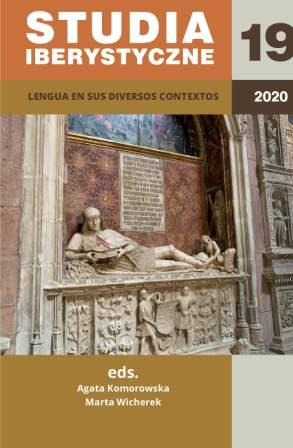Sobre la expresión de posterioridad en el español peninsular y en su variedad mexicana en los años 1929-2015
On the Expression of Posteriority in Peninsular and Mexican Spanish between 1929 and 2015
Author(s): Witold SobczakSubject(s): Syntax, Historical Linguistics, Comparative Study of Literature
Published by: KSIĘGARNIA AKADEMICKA Sp. z o.o.
Keywords: future; posteriority; modality; linguistic change; Spanish tense system;
Summary/Abstract: This article aims to comment on the changes which took place among forms expressing posteriority in Peninsular and Mexican Spanish between 1929-2015. The study is based on a prepared corpus which is comprised of twenty novels (ten Spanish and ten Mexican). Emphasis is not only put on the distribution of cantará, va a cantar y canta, but also on the in-depth analysis of the usage of cantaría, iba a cantar, y cantaba. Furthermore, the analysis includes the so-called accompanying forms, such as vaya a cantar, fuera a cantar, fuese a cantar, irá a cantar, iría a cantar, va a haber cantado e iba a haber cantado.
Journal: Studia Iberystyczne
- Issue Year: 2020
- Issue No: 19
- Page Range: 207-222
- Page Count: 16
- Language: Spanish

